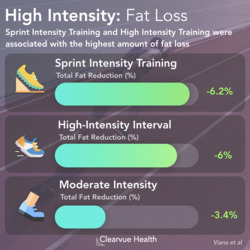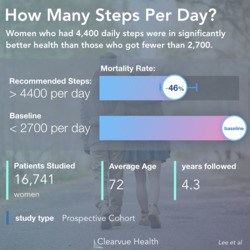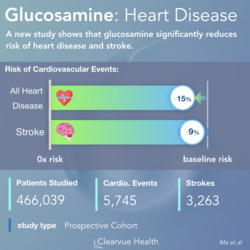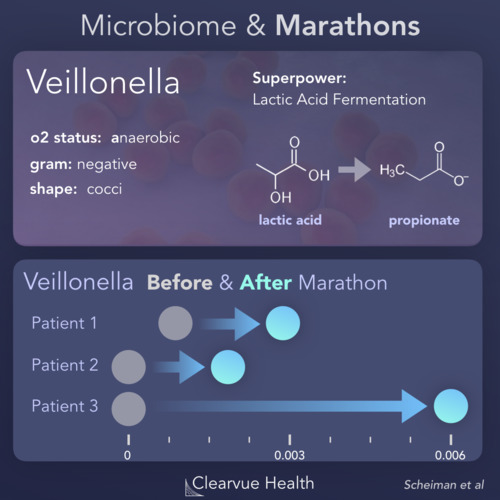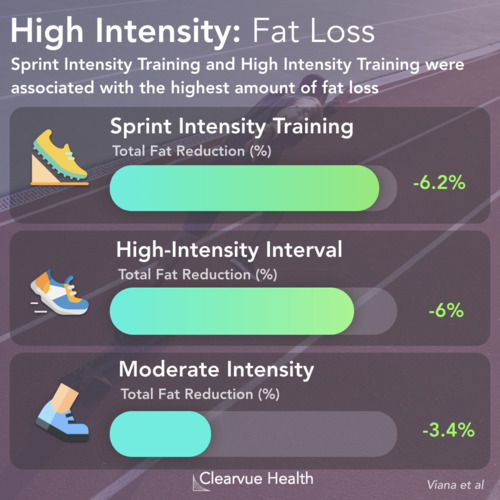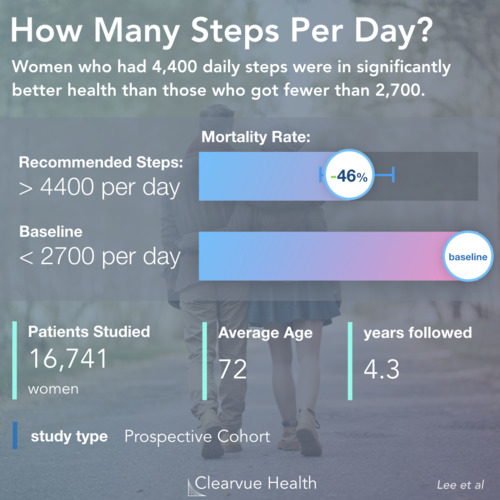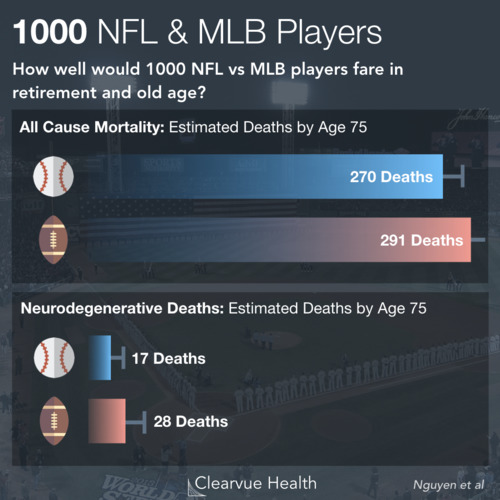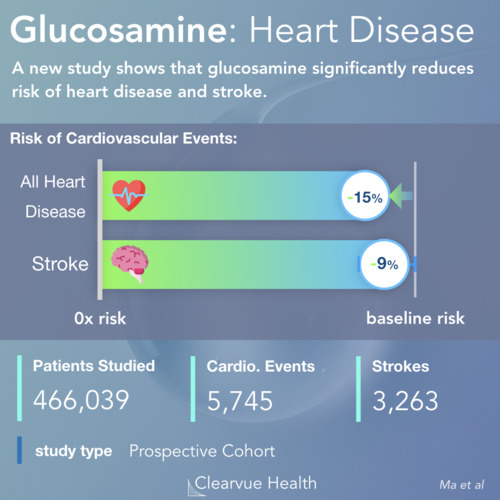The Risk of Arthritis for Runners

Figure 1: The Risk of Arthritis for Runners. Individuals who regularly ran had a lower risk of developing arthritis. The analysis above splits runners into four categories based on how much they ran per week. Those who rarely ran were used as the baseline for the risk comparison. Those who ran regularly, whether they were casual runners, moderate runners, or intense runners, had a significantly lower risk of developing arthritis. (p<0.05)
Do runners have a higher risk of arthritis? This simple question is surprisingly difficult to answer. Some studies say yes, some say no.
A new study followed the largest cohort to date, 74,752 runners and 14,625 walkers, to provide a higher quality answer to this question.
They found that in general, runners did not have a higher risk of arthritis. Individuals who ran regularly actually had a lower risk of arthritis than those who did not.
However, once this figure was adjusted for BMI, the reduced arthritis risk for runners was no longer statistically significant.
This suggests that running reduces BMI while improving physical health, which leads to a lower arthritis risk compared to walkers.
+
+
Sample Size - This study was several times larger than previous studies
+
Variable Adjustment - The study adjusted for age, sex, education, hormone use, and meat intake.
-
Data Collection - This study used survey data which is prone to bias.
-
Controls - The study used walkers and occasional runners as controls. However, these groups had a significantly higher BMI to begin with. A better control for a running & arthritis would have been a BMI-matched group.
Source: Effects of Running and Walking on Osteoarthritis and Hip Replacement Risk
Weight Drives Arthritis Risk

Figure 2: BMI vs Arthritis Risk. High BMIs are associated with a higher risk of developing arthritis. Those with a BMI higher than 27.5 in this study showed a roughly 50% higher risk of developing arthritis.
Any benefits from not running are likely over-shadowed by the significant benefits of weight loss.
The real culprit behind arthritis is BMI. Higher weight puts more pressure on your joints, particularly your knee.
Individuals in this study had a dose-dependent relationship between BMI and arthritis. The data suggests that your arthritis risk goes up with every additional excess pound.
Source: Effects of Running and Walking on Osteoarthritis and Hip Replacement Risk
Walking vs Running & Arthritis Risk

Figure 3: Walking vs Running & Arthritis Risk. Runners have a significantly lower risk of arthritis at every level Walkers do not, even when matched for energy expenditure.
Casual runners have a significantly lower risk of arthritis than walkers. However, high intensity walkers and runners both had a similarly lower risk of developing arthritis. This suggest that running is not necessarily better than walking when it comes to arthritis, but it certainly isn't worse.
Source: Effects of Running and Walking on Osteoarthritis and Hip Replacement Risk
Arthritis Risk for Marathon and 10K Runners

Figure 4: Arthritis Risk for Marathon and 10K Runners. Individuals who ran marathons did not show a higher risk of arthritis. Competitive 10K runners showed a trend towards lower risk, but this did not reach statistical significance. Circles above are scaled to the hazard ratio of arthritis for each group.
Marathon runners and competitive 10K runners likely run more than anyone else. Training for a marathon often involves running 10 miles a day for months in order to get in shape for a 26 mile race.
Researchers in this study followed 22,705 runners who had run at least one marathon. They found that running more marathons has no effect on arthritis risk, even in those who ran 2-5 marathons per year.
Similarly, 10K race performance times had no effect on the risk of developing arthritis.
Source: Effects of Running and Walking on Osteoarthritis and Hip Replacement Risk
Key Takeaways & Study Weaknesses
As shown in the evidence score above, we only gave this study a 2/5. While this is one of the better studies so far in this space, it suffers from some significant shortcomings.
The data shows that generally, individuals who run regularly have a lower risk of arthritis than those who don't. This is great news. However, it tells us nothing about running vs cycling and swimming. If a runner switches to cycling, which burns calories with less impact on the knees, would they have a lower arthritis risk?
It does good evidence that on a whole, running is beneficial for reducing arthritis risk. Avoiding running to reduce arthritis risk is likely not a good strategy. The benefits of weight loss far outweigh any possible risk of arthritis when it comes to running, if there are any at all.
Limitations of Self-Reported Data
Much of the data in this arthritis study is self-reported, which has several limitations and sources of bias. Self-reported data, which is obtained through surveys and questionnaires, is the most feasible way of collecting data from large subsets of the population. However, the data may suffer from recall bias, where respondents may forget certain details or may not accurately remember details. They may also suffer from social desirability bias, where respondents may be reluctant to admit to socially undesirable behaviors, even if the survey is anonymous.
Washington Post
If you’re running healthy, stay the course, advises Thomas Jefferson orthopedist Danielle Ponzio. If you’re thinking about beginning a running program but are concerned about arthritis, don’t worry. Just begin slowly and progress moderately. “Running is not harmful to healthy hips and knees,” Ponzio says. “In fact, it promotes joint and general health.” Those runners who do develop arthritis often get it after earlier injury or surgery, or from family genetics.
Journal of the American Osteopathic Association
Although there are not currently enough data to give clear recommendations to long-distance runners, it appears that long-distance running does not increase the risk of osteoarthritis of the knees and hips for healthy people who have no other counterindications for this kind of physical activity. Long-distance running might even have a protective effect against joint degeneration.
Clearvue Health is not affiliated with above organizations. The information above is provided to highlight and link to useful further reading.







